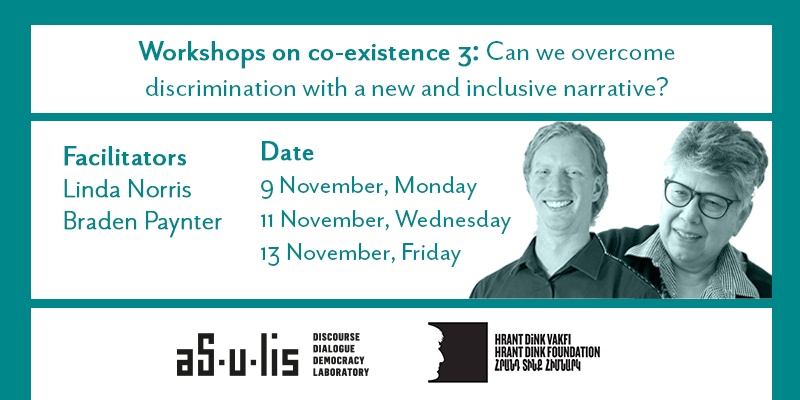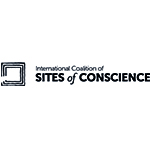Discrimination across a wide range of power spectrums, including race, religion, gender, country of origin, class and many more, persist as both root and causes of harm around the world. Discrimination is experienced both individually and systemically which produces physical, psycho-social, and emotional impacts both on those targeted and on the harm doers. Countering discriminatory practices and building an anti-discriminatory culture is a crucial job well suited to cultural organizations and civil society organizations. Because discrimination is a culturally learned and influenced behavior, organizations that work with culture, history, storytelling, documentation, and memorialization have many of the key tools needed to address discrimination already. Doing so requires a willingness to examine our own bias at the individual, organizational, and cultural levels, think intentionally about how we are engaging with systems of power, and plan how to use our tools to specifically counter discriminatory behavior.
In this workshop facilitated by International Coalition of Sites of Conscience Networks Program Director, Linda Norris and Director for Methodology and Practice, Braden Paynter participants will introduce participants to several fundamental concepts of anti-discriminatory work within the framework of narratives and power relations.
Monday, November 9, 2020 14.00-17.00
In the first day of the workshop participants will examine the hardships that civil society organisations operate within with a focus on how these hardships seek to shape the stories they tell. The participants will focus on the effects of these hardships to their storytelling and will seek methods to overcome them. The Workshop will focus on developing methodologies of overcoming these hardships.
Wednesday, November 11, 2020 14.00-17.00
Workshop Two will look at the concept of Diversity, Equity, Accessibility, and Inclusion, as frameworks for analyzing situations and building just and anti-discriminatory practice into all aspects of operations. Participants will become familiar with DEAI as individual terms and how they work together as related parts of a system. Participants will analyze their work and communities for ongoing exclusion and look for opportunities to apply DEAI to counter it
Friday, November 13, 2020 14.00-17.00
Workshop Three will focus on monuments, memorialization and storytelling as tools for shifting perceptions of discrimination. Participants will be introduced to several frameworks for analyzing storytelling and the impacts it has. They will then examine their own stories looking for opportunities to shift their storytelling to intentionally counter harmful narratives.
- The workshop will be conducted on Monday, November 9th, Wednesday, November 11th and Friday November 13th from 14.00 am - 17.00 pm via Zoom.
- The language of the workshop will be English with simultaneous translation to Turkish.
- It will be a participatory interactive workshop with group studies and discussion.
- Deadline for the workshop is 3 November, 2020.
- Participation is limited with 30 people.
- Please fill the form below to apply to the workshop.
|
The International Coalition of Sites of Conscience
|
Linda Norris
|
Braden Paynter
|

This project is funded by the European Union.



 Founded in 1999, the International Coalition of Sites of Conscience is the only worldwide network of Sites of Conscience. With over 275 members in 65 countries, they build the capacity of these vital institutions through grants, networking, training and transitional justice mechanisms. These members and partners remember a variety of histories and come from a wide range of settings – including long-standing democracies, countries struggling with legacies of violence, as well as post-conflict regions just beginning to address their transitional justice needs – but they are all united by their common commitment to connect past to present, memory to action.
Founded in 1999, the International Coalition of Sites of Conscience is the only worldwide network of Sites of Conscience. With over 275 members in 65 countries, they build the capacity of these vital institutions through grants, networking, training and transitional justice mechanisms. These members and partners remember a variety of histories and come from a wide range of settings – including long-standing democracies, countries struggling with legacies of violence, as well as post-conflict regions just beginning to address their transitional justice needs – but they are all united by their common commitment to connect past to present, memory to action. As the Global Networks Program Director, Linda Norris leads the Coalition’s programmatic workaround the globe, helping to build the capacity of almost 300 members in 65 countries through trainings and workshops, collaborative projects, cross-regional exchanges, and advocacy campaigns. Norris represents the Coalition in international museum and heritage contexts. She is also an adjunct instructor in Johns Hopkins University. As the co-author of Creativity in Museum Practice, Linda Norris is an international leader in facilitating conversation and action surrounding the ways creativity can transform museums, shape more compelling narratives and create deeper, more inclusive community connections.
As the Global Networks Program Director, Linda Norris leads the Coalition’s programmatic workaround the globe, helping to build the capacity of almost 300 members in 65 countries through trainings and workshops, collaborative projects, cross-regional exchanges, and advocacy campaigns. Norris represents the Coalition in international museum and heritage contexts. She is also an adjunct instructor in Johns Hopkins University. As the co-author of Creativity in Museum Practice, Linda Norris is an international leader in facilitating conversation and action surrounding the ways creativity can transform museums, shape more compelling narratives and create deeper, more inclusive community connections. As the Director for Methodology and Practice, Braden Paynter supports Sites of Conscience members in developing programming, exhibitions and community engagement strategies. He also works with members to build the Coalition’s internal collection of resources, surfacing sites’ expertise and sharing it with others. He has trained dozens of organizations in dialogue and planning. Paynter advises both members and non-members, as well as consulted on the new permanent exhibit ofthe Niagara Falls Underground Railroad Heritage Area. Paynter has also designed and coordinated a two-year intensive training initiative in dialogic interpretation for Connecticut Landmarks. Currently leading the Coalition’s work with Ford’s Theatre, Paynter’s past work has focused on using public education spaces to connect people to each other and the world around them. Before joining the Coalition, Paynter worked with the National Park Service at the Frederick Douglass National Historic Site where he oversaw public, education and professional development programs, web and social media, and exhibits.
As the Director for Methodology and Practice, Braden Paynter supports Sites of Conscience members in developing programming, exhibitions and community engagement strategies. He also works with members to build the Coalition’s internal collection of resources, surfacing sites’ expertise and sharing it with others. He has trained dozens of organizations in dialogue and planning. Paynter advises both members and non-members, as well as consulted on the new permanent exhibit ofthe Niagara Falls Underground Railroad Heritage Area. Paynter has also designed and coordinated a two-year intensive training initiative in dialogic interpretation for Connecticut Landmarks. Currently leading the Coalition’s work with Ford’s Theatre, Paynter’s past work has focused on using public education spaces to connect people to each other and the world around them. Before joining the Coalition, Paynter worked with the National Park Service at the Frederick Douglass National Historic Site where he oversaw public, education and professional development programs, web and social media, and exhibits.